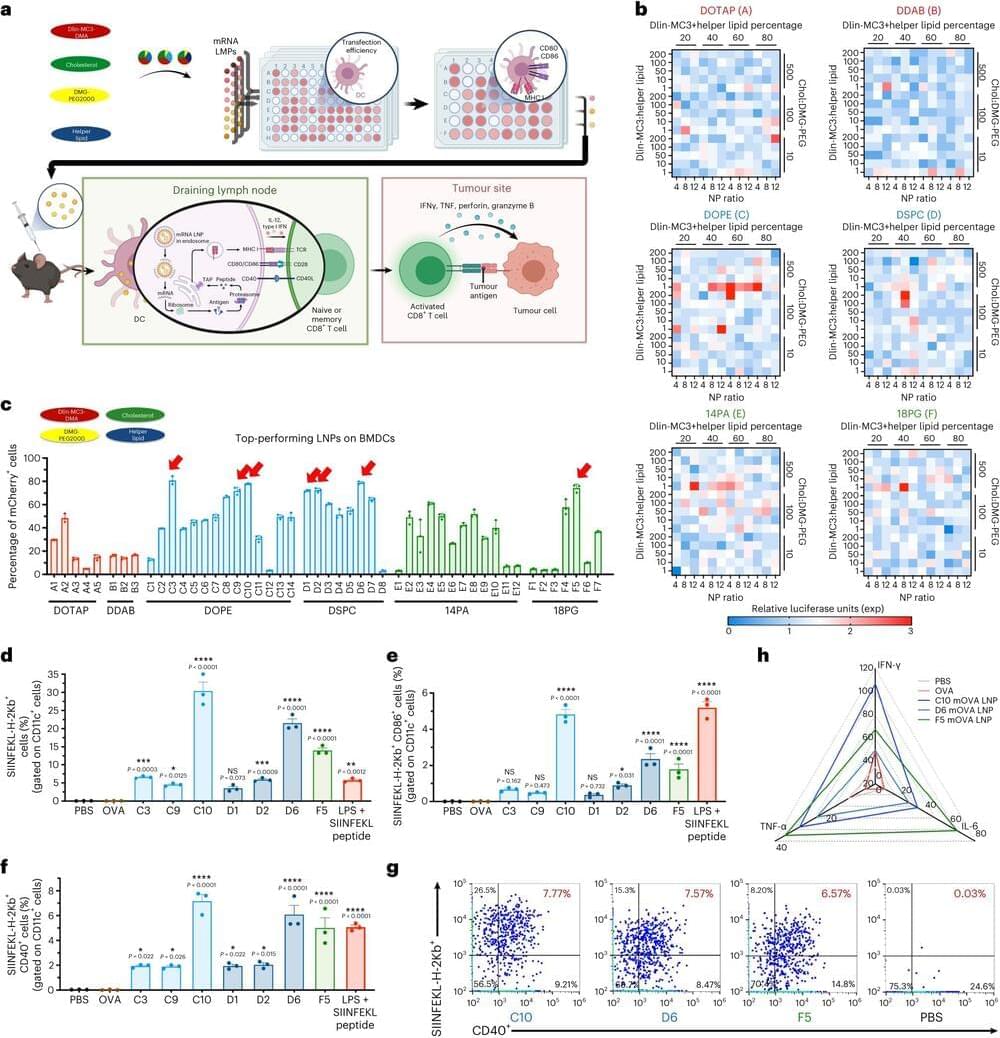Johns Hopkins researchers have identified minuscule particles that supercharge therapeutic cancer vaccines, which train the immune system to attack tumors. These new lipid nanoparticles—tiny structures made of fat—not only stimulate a two-pronged immune system response that enhances the body’s ability to fight cancer but also make vaccines more effective in targeting tumors.
“This research marks a pivotal turning point in our understanding of how lipid nanoparticles can be harnessed to optimize anticancer immunity,” said Hai-Quan Mao, director of Johns Hopkins’ Institute for NanoBioTechnology and professor in the Whiting School of Engineering’s Department of Materials Science and Engineering. “Our findings unlock new avenues for enhancing the efficacy of RNA-based treatments for cancer and infectious diseases.”
The team’s results appear in Nature Biomedical Engineering.
